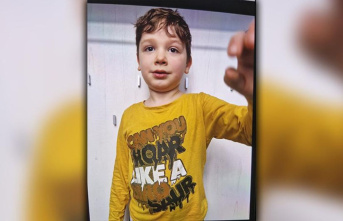People with disabilities and the elderly should not be disadvantaged when treatment capacities in intensive care units are scarce in the event of a pandemic. On Thursday, the Bundestag passed a law by the traffic light coalition on so-called triage. The term means that if there are too few beds or ventilators, doctors determine who will be treated first. According to the law, a decision should be made in such a case based on the "current and short-term probability of survival" of a patient. Other criteria such as age or disability should not play a role.
More pandemics and infectious diseases are to be expected, said Health Minister Karl Lauterbach (SPD) on Thursday. So you have to be better prepared. "But in principle it must be clear that people with disabilities or older people are not disadvantaged, even in times of scarce capacities." Politicians from several parties expressed the hope in the Bundestag that this law would never have to be applied.
The Union complained that the regulation should only apply to pandemics and not to natural disasters, war or terrorist attacks. The AfD spoke of an encroachment on the part of the state. The law is an expression of a deep mistrust of doctors, who should be deprived of the opportunity to make decisions for the benefit of the patients with bureaucratic rules.
There is also criticism of the decision of the Bundestag from parts of the medical profession. As early as June, the "Working Group of Scientific Medical Societies" (AWMF) had criticized four main points of the draft law in a statement and submitted its own formulation proposals for the relevant bodies. Now the "German Interdisciplinary Association for Intensive Care and Emergency Medicine" (Divi) criticizes that the "four very clear points of criticism of the draft law with corresponding proposals for wording" were not taken into account.
The law now provides that whoever is already in a hospital bed will certainly be treated. Even if someone with a higher chance of survival needs a bed in an intensive care unit, that patient loses out. "We strictly reject this 'first-come-first-serve' allocation of intensive care resources, as well as the possibility of a simple lottery," said Prof. Uwe Janssens according to the Divi press release. He is certain: "The ban on ex-post prioritization that has now been formulated by law will inevitably lead to more avoidable deaths."
The topic of triage came into focus during the pandemic due to full intensive care units. A decision by the Federal Constitutional Court of December 2021 is to be implemented with the regulation. The court had decided that the state has a duty to protect people from discrimination because of their disability. The legislature was instructed to make provisions for this. So far there is no legal framework, but scientifically developed recommendations for doctors. The amendment to the Infection Protection Act that has now been decided still has to be passed by the Bundesrat. However, approval is not required.
Further sources: Draft law on triage, recommended resolution on triage, statement by the AWMF, press release by the DIVI.












